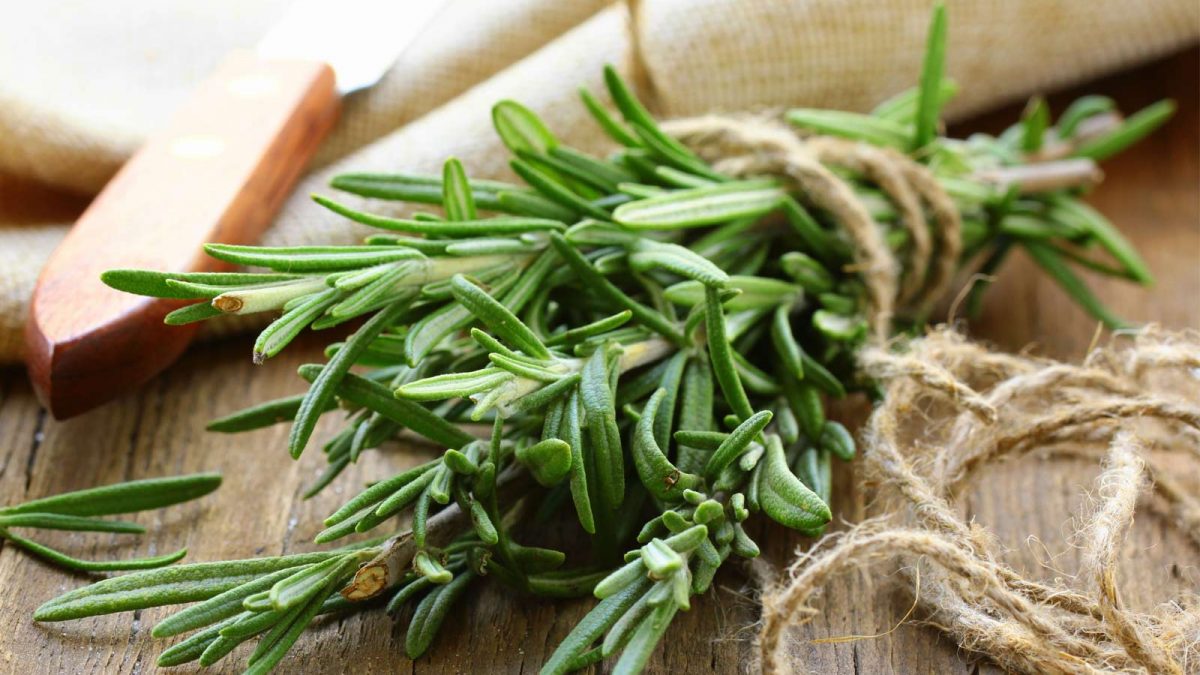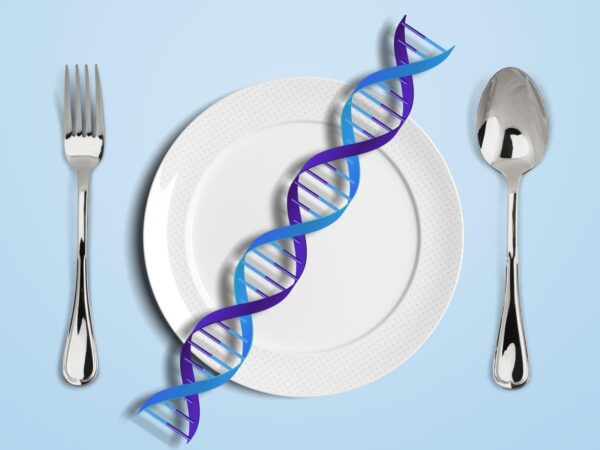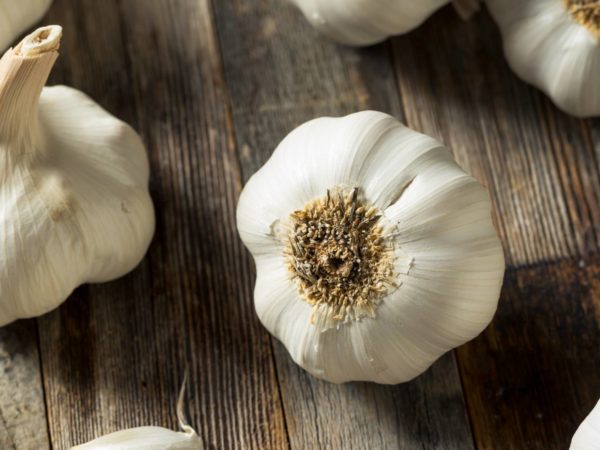7 Health Benefits of Rosemary (Plus: How to Boost Its Healing Power)
Do you want to discover the powerful health benefits of rosemary? Read on to learn how this healing herb can protect your health!
In a few other Healing Gourmet articles, I told you about the many healing properties of the spice, turmeric, how you can maximize its power in your cooking and the delicious ways to incorporate it in your diet.
Today I’m going to share another powerful pantry preventive that will make your menus more mouthwatering… and turn every delicious dish into a meal that heals.
Health Benefits of Rosemary: The Fragrant Herb that Fights Forgetting
Do you ever misplace your keys… forget why you walked into a room… or draw a blank on people’s names? Then eating more rosemary might be just what the doctor ordered.
Rosemary is an herb in the Labitae, or mint, family. It’s native to the Mediterranean region and regarded as the “herb of remembrance” by Shakespeare. Rosemary has been used for millennia as a memory enhancer.
But its ability to guard the memory isn’t just folklore.
In fact, a recent study published in Current Pharmaceutical Design cites rosemary as a natural, effective, and well-tolerated treatment for dementia.
So how does this piney herb protect precious memories? With a combination of two powerful neuro-protective nutrients: carnosic acid and rosmarinic acid.
Carnosic acid shields brain cells from the free radical damage that is seen in stroke, Parkinson’s and Alzheimer’s diseases. It also boosts circulation in the brain and increases the production of nerve growth factor (NGF) – a substance critical for the survival and maintenance of neurons.
Rosmarinic acid protects brain cells from beta-amyloid plaque, which is known to cause degeneration and death of brain neurons and is now considered the primary culprit in Alzheimer’s disease.
And rosemary can help you stay “clear headed” in other ways too…
Breathe Easier and Reduce Allergies
If you suffer from allergies or asthma, this mighty mint can help ease sneezes and wheezes, thanks to its powerful anti-inflammatory properties.
A recent study conducted at the Kyoto Prefectural University of Medicine evaluated the effects of rosemary on patients with seasonal allergies. The patients were divided in two groups – one taking a supplement with rosemary extract and the other, a placebo. Those taking the rosemary extract had a significant decrease in allergy symptoms, including itchy, watery eyes and runny nose, compared to the placebo group.
Other studies have shown that rosemary can reduce the inflammation that accompanies asthma and the allergic reaction resulting from exposure to dust mites.
Boost Your Body’s Cancer Defenses
In addition to reducing inflammation, there’s something else that rosemary can help reduce: estrogen.
And if you’re a woman who’s concerned about breast cancer, this is very important as an imbalance of estrogen has long been known to contribute to breast cancer.
While conventional cancer drugs like Tamoxifen help block the effects of estrogen, they come with a long list of side effects. Rosemary, on the other hand, offers a safe and natural alternative to mopping up excess estrogen and promoting hormonal balance.
Researchers believe that rosemary stimulates specific liver enzymes which inactivate estrogen hormones and detoxify substances that can initiate the breast cancer process.
What’s more, compounds in rosemary have been found to inhibit cancer cells from growing. In fact, a recent study published in Oncology Reports found that rosemary inhibited the growth of both human breast cancer and leukemia cells.
But these aren’t the only way rosemary can ward off cancer, it can also…
Slash the Cancer-Causers in Your Food
In other Healing Gourmet articles, I told you about two cancer-causing compounds that form when carbohydrates and proteins are cooked over high heat: acrylamide and heterocyclic amines (HCAs).
While the best bet is to use slow and low cooking techniques that prevent these compounds from forming in the first place, adding rosemary to your cooking can significantly reduce the cancer-causers that inadvertently make their way onto your plate. Take a look:
- Recent research published in the Journal of Agricultural and Food Chemistry found that adding rosemary to dough prior to baking wheat-based buns at 437 F reduced the acrylamide content by up to 60%.
- Researchers at Kansas State University found that rosemary extract reduced the HCA levels in beef cooked at high temperatures from 30 – 100%.
- Another study published in the International Journal of Food Sciences and Nutrition found that rosemary extract reduced the total amount of HCAs in grilled chicken by more than 60%.
While rosemary provides powerful cellular protection, it also works wonders on your “vascular superhighway” too.
Flavor Your Way to a Healthier Heart
In fact, rosemary guards your heart in three unique ways.
First, it helps blood vessels to open up a little wider, reducing blood pressure (or hypertension). Next, rosemary inhibits the oxidation of LDL (or bad cholesterol). Finally, it helps to prevent platelets from sticking together and forming a clot – three major risk factors for heart disease and stroke.
Now you know that rosemary’s powers range from protecting neurons to easing stuffy noses… and from shielding against cancer and fighting heart disease. But this potent herb doesn’t just work undercover, it also provides benefits to the part of your body that’s most visible to the human eye: Your skin!
Ward of Wrinkles and Age Spots
Rosmarinic acid also acts as a powerful “photo-protector” by neutralizing free radicals and also turning on the body’s defense mechanisms that help prevent skin alterations (like wrinkles and age spots) that can result from sun exposure.
Carnosic acid and carnosol found in rosemary also help to keep skin healthy by guarding against mutations and protecting against gamma ray induced damage, according to a study published in the British Journal of Radiology.
Recharge Your Antioxidant Arsenal
Last but not least, rosemary boosts your body’s antioxidant ability and can even help recharge other antioxidants in your body.
And when it comes to guarding against free radicals, this is very important. You see, typically once an antioxidant has neutralized a free radical, the antioxidant is no longer useful and becomes inert. Worse yet, it can become a free radical itself.
But rosemary is different. Not only does it offer long lasting protection, it contains more than two dozen antioxidants that neutralize free radicals and recharge other antioxidants (including vitamin E) back to their active state.
The result is stronger, longer lasting antioxidant power and fewer free radicals.
Maximizing “The Power Mint”
When it comes to maximizing the bevy of health benefits rosemary provides, there are a myriad of delicious culinary options to consider:
- Sip a Tea: Steep fresh or dried rosemary for 5 minutes in boiling filtered water.
- Make a Dry Rub: Blend dried rosemary with other spices (like black pepper, turmeric, paprika and cayenne) and apply to meats, fish and poultry before cooking.
- Whip up a Dressing or Marinade: Combine fresh or dried rosemary with olive oil, fresh garlic, lemon juice or vinegar. Drizzle over salads and grilled veggies or use as a marinade.
Like other herbs, dried rosemary should be stored in a cool, dark place and replaced every six months. Keep fresh rosemary in an airtight bag in the refrigerator and remove woody stems before adding to foods.
Rosemary is also very easy to grow and flourishes in almost any climate. For a never ending fresh supply, consider growing your own.
As more people are turning back to Mother Nature (and turning their backs on synthetic drugs) to find natural solutions to everyday ailments and chronic conditions, medicinal herbs like rosemary are coming to the forefront.
So whether you are looking to protect your memory, ease allergies and asthma or help prevent disease, you can count on the health benefits of rosemary as a safe, effective natural preventive that provides delicious flavor to your meals.




Leave a Reply